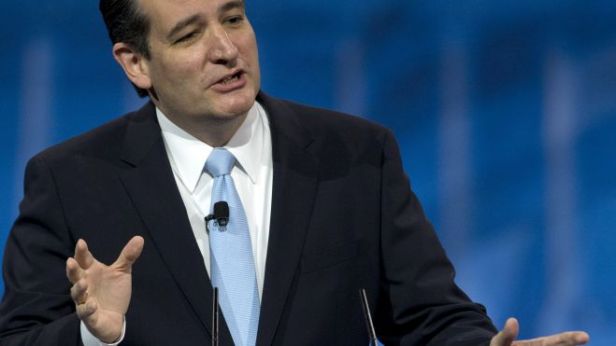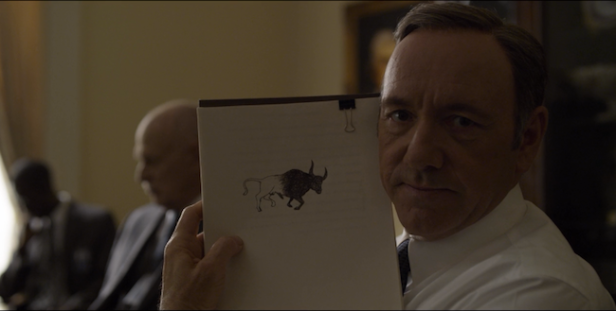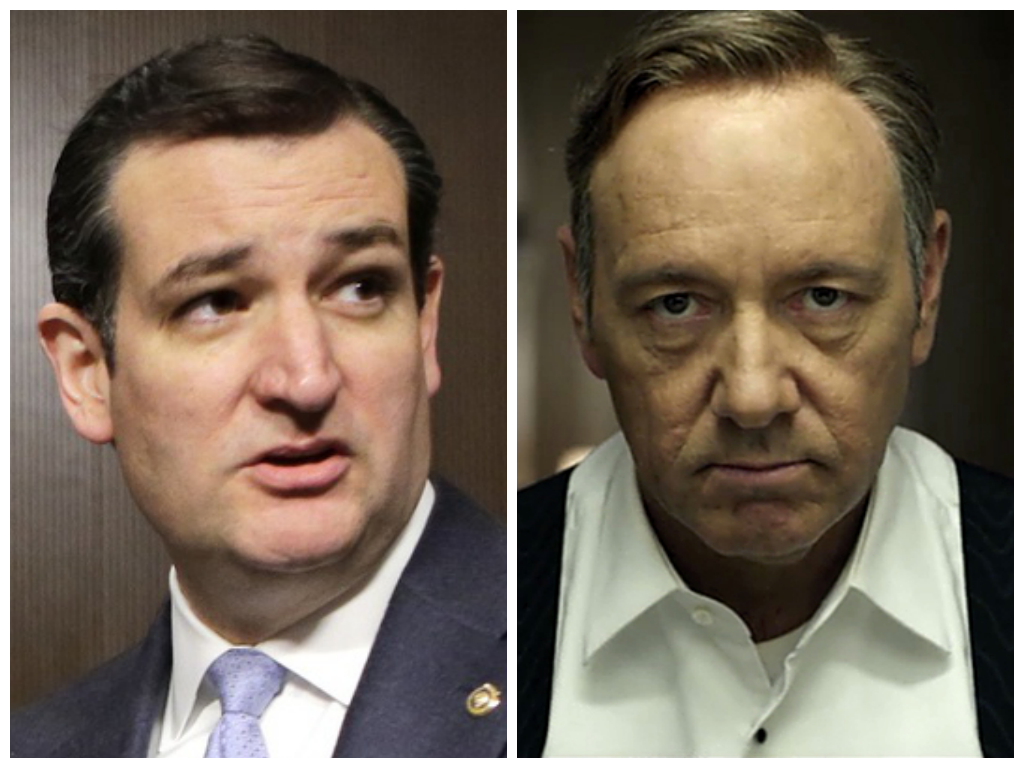Thus far, House of Cards 2.0 has been an even more captivating experience than 1.0, but episode three was particularly interesting for this reason: Ted Cruz makes an appearance — well, not exactly. But there is a character who is clearly Cruz-esque.
Videos by Rare
When one considers the character Sen. Curtis Haas, a few key details make the Cruz comparison plausible: First, Haas is referred to as a “Tea Party Bullhorn.” This metaphorical label certainly applies to Cruz and recently was by a Time article, which stated that his “Tea Party megaphone gives him national reach and fundraising firepower.” No one can deny Cruz’s popularity with the Tea Party and Haas is portrayed as equally popular. If only they had stated outright that he hailed from Texas.
Second, Haas refuses to cooperate with Democrats on an omnibus bill because it lacked entitlement reform; he would rather the government shut down. Anyone who’s been remotely conscious in recent months knows that an unwillingness to sign up for a continuing resolution without additional Obamacare alterations was the real-life bugaboo for Cruz.
The second led to the third: Haas fails to filibuster the bill successfully. We recall that Cruz’s long stand was really just a speech, not a technical filibuster, that is, a true delay of a bill by speech. In the show, after a hand-shake deal with Frank Underwood on the terms of the bill, Haas arrives on the scene in Congress to filibuster, but it was already too late because of reason number four.

Fourth and finally, Haas is not on good terms with his fellow Republicans. The Republican Majority Leader, Mendoza, goes behind Haas’s back to do the bidding of Underwood to keep him from stealing his own political power in the form of vote loyalties, which a persuasive filibuster could cause. Mendoza later criticizes Haas for not “toeing the party line.” Ted Cruz has a very negative reputation among his fellow Republicans, so much so that ABC News’ Jonathan Karl said the following on last Sunday’s “This Week with George Stephanopoulos”: “I’ll tell you, Ted Cruz is so hated among his Republicans … Now more so than even during the shutdown, at that … lunch they have every Tuesday, he’s going to need a food taster.”
But what are we meant to think about all of this? Is this a political statement about Cruz and the Tea Party? Are we supposed to applaud Haas for unknowingly standing up against a sinister and murderous man in Francis Underwood and failing? Or is he meant to be a mockable caricature of Cruz?
Haas is not portrayed sympathetically and, in the end, plays the rube. In that sense, his character can be seen as making fun of Ted Cruz, who was portrayed unflatteringly after the shutdown, as it led to Democrat characterizations of Republicans as “anti-government ideologues” rather than keeping the heat on a failing Healthcare.gov.
On the other hand, Haas stands up against an evil establishment, one tainted by anti-hero Frank Underwood’s machinations. His willingness to challenge the status quo in Congress, “to Make D.C Listen,” seems to be overwhelmingly positive, even in failure.
Perhaps Cruz gets both the good and bad thrown his way by House of Cards, appearing through Haas as an unsympathetic, but sincere establishment-challenger.




